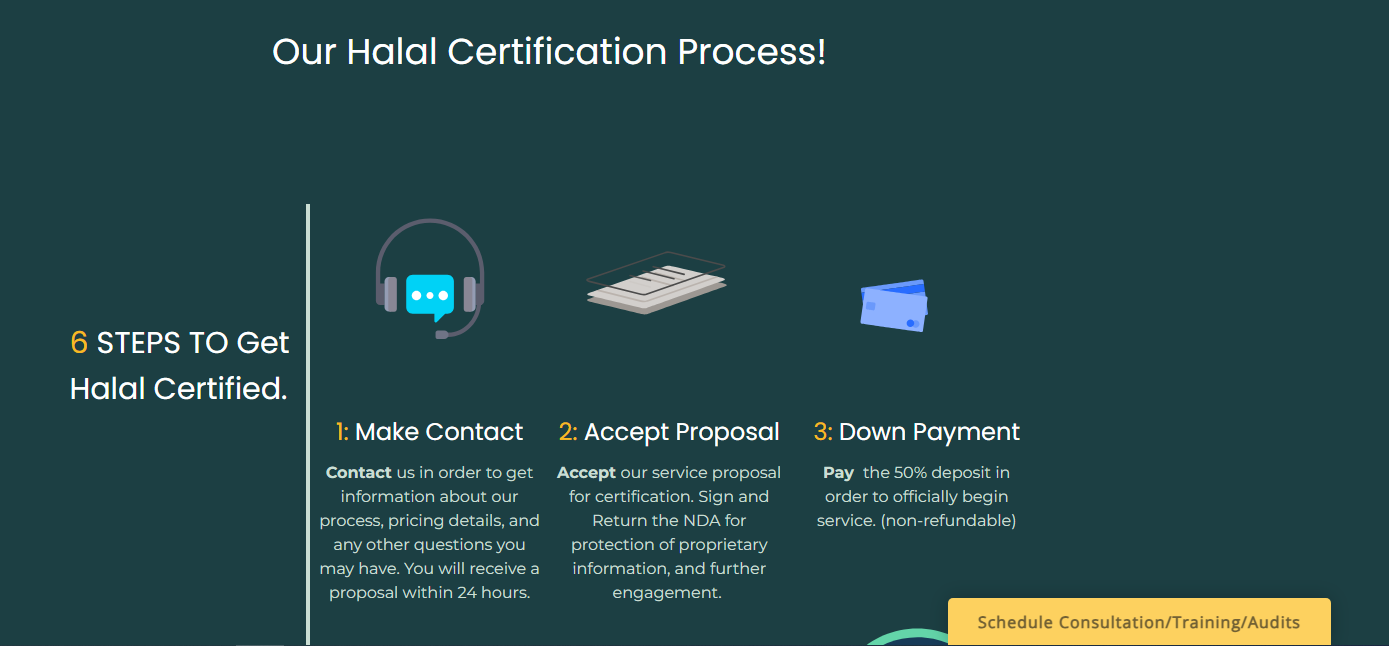Halal Certification: A Guide to Understanding and Implementation

Halal certification is an essential process for businesses aiming to serve Muslim consumers and ensure their products or services comply with Islamic law. This certification guarantees that all aspects of the product or service align with Halal principles, making them permissible for Muslims to consume or use.
What is Halal Certification?
Halal certification is a formal recognition provided by an accredited body, confirming that products, services, or processes meet the requirements of Islamic law. The term "Halal" means "permissible," while its opposite, "Haram," refers to prohibited items under Islamic guidelines.
This certification is especially significant in industries such as food, beverages, cosmetics, pharmaceuticals, and even logistics. It ensures that the ingredients, manufacturing processes, and handling meet stringent Islamic standards, including cleanliness, ethical sourcing, and the absence of prohibited substances such as pork, alcohol, or non-Halal animal derivatives.
Why is Halal Certification Important?
1. Catering to the Muslim Market
With over 1.9 billion Muslims globally, Halal certification is crucial for businesses looking to tap into this rapidly growing market. It assures consumers that products meet their religious and ethical requirements.
2. Enhancing Consumer Trust
Displaying a Halal certification logo on your products fosters confidence among Muslim consumers. It serves as a mark of authenticity, quality, and compliance with Islamic principles.
3. Expanding Market Reach
Halal-certified products are not only demanded in Muslim-majority countries but also in regions with diverse populations, such as North America and Europe. This certification allows businesses to access international markets and meet regulatory requirements in countries like Malaysia and Indonesia.
4. Aligning with Ethical Practices
Halal certification promotes ethical and sustainable practices in sourcing, production, and distribution, appealing to both Muslim and non-Muslim consumers seeking high-quality, responsibly-produced goods.
Steps to Obtain Halal Certification
Step 1: Research Requirements
Understand the Halal standards applicable to your industry. Different regions may have specific requirements, and standards may vary depending on the certifying authority.
Step 2: Partner with a Halal Certification Body
Choose an authorized Halal certification agency such as JAKIM (Malaysia), HFA (UK), or IFANCA (USA). These organizations ensure compliance with strict Halal standards.
Step 3: Prepare Documentation
Submit detailed records of product ingredients, sourcing, production processes, and facility hygiene standards.
Step 4: Facility Inspection
The certification body will conduct on-site inspections to ensure compliance. They evaluate raw materials, equipment, and overall operations.
Step 5: Certification Approval
Once all criteria are met, the certification body issues a Halal certificate. Businesses must renew this certification periodically to maintain compliance.
Industries Benefiting from Halal Certification
- Food and Beverages: Snacks, meat, dairy products, and beverages.
- Cosmetics: Lipsticks, creams, and shampoos.
- Pharmaceuticals: Supplements, medicines, and healthcare products.
- Hospitality: Hotels, restaurants, and catering services.
The Growing Global Demand for Halal Certification
The Halal market is expanding rapidly, fueled by a rising Muslim population and growing consumer awareness. The Halal food market alone is projected to surpass $3 trillion by 2030. Additionally, Halal-certified cosmetics, pharmaceuticals, and fashion products are gaining traction worldwide.
Conclusion
Halal certification is more than a religious necessity—it is a symbol of trust, quality, and inclusivity. By obtaining Halal certification, businesses can meet the needs of Muslim consumers, comply with global regulations, and gain a competitive advantage in a thriving market. Whether you're in food production, cosmetics, or hospitality, Halal certification is a strategic step toward long-term success.
- Art
- Causes
- Crafts
- Dance
- Drinks
- Film
- Fitness
- Food
- Games
- Gardening
- Health
- Home
- Literature
- Music
- Networking
- Other
- Party
- Religion
- Shopping
- Sports
- Theater
- Wellness
- IT, Cloud, Software and Technology


